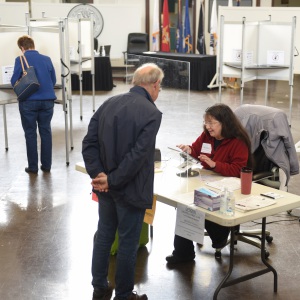Columnist Bill Newman: Unanswered questions in UMass overdose death conviction
| Published: 06-02-2017 8:24 PM |
This is a story of sadness and punishment compounding tragedy and pain.
On Oct. 4, 2013, Eric Sinacori, a 20-year-old kinesiology major at the University of Massachusetts, was found dead in his apartment at Puffton Village in Amherst. He died from a heroin overdose. His father found his body.
Sinacori’s story is heartbreaking. Most heartbreaking, perhaps, is the many tens of thousands of times this story — with details that vary — has been told and written about families throughout America in recent years. The opioid epidemic has become an almost equal-opportunity killer.
Most of the tragic drug-induced deaths of young people are a one-day news story. Not for the families, of course, which continue to mourn and grieve. Eric’s mother, Francesca Sinacori, said this week that she lives with “an emptiness that will haunt me for the rest of my life.”
Eric’s death, however, was not a one-day story. An undergraduate investigative newspaper reporter at UMass revealed the culpability of the university in his death. UMass knew Eric Sinacori had a drug problem. Did it help him? No. Did it attempt to advise his parents? No. Did it offer medical help and rehabilitation? It did not. Rather, the university police kept him in the maelstrom of a drug-using community, and turned him into an asset in its confidential informant program.
After the revelations in the media, Chancellor Kumble R. Subbaswamy ended the students-as-drug-informants program. It is noteworthy that no UMass official received any public criticism from the university for instituting and running it.
This story stayed in the news for a different reason. Another UMass student, Jesse Carrillo, was indicted by the Northwestern district attorney’s office for giving Sinacori the heroin that killed him.
The distribution charge was straightforward. It alleged that Carrillo gave Sinacori the heroin. Distribution does not require an exchange of money.
Article continues after...
Yesterday's Most Read Articles
Carrillo was also charged with involuntary manslaughter. Involuntary manslaughter alleges a death caused by reckless conduct.
This week, in Hampshire County Superior Court, Carrillo was found guilty of both charges, and on Thursday Judge John Agostini sentenced him to a year in jail, fines and lengthy probation.
Eric Sinacori’s family wanted Carrillo sentenced as a drug dealer. But he wasn’t that. As Judge Agostini said at the sentencing, “The important facts are that I don’t perceive that Jesse was a drug dealer ... I see it as one addict from another, helping each out in a perverted sense.” Yes, Jesse gave Eric heroin. Addicts do that.
Carrillo’s attorney, J. W. Carney Jr., has filed an appeal on the basis that the judge did not give the jury the option of finding a joint personal use of heroin by both men, which would have been a basis for acquittal. Carney also contends that there was insufficient evidence to support the manslaughter conviction.
Agostini will rule soon on whether Carrillo will stay out of jail while his appeal is pending. If Agostini turns down that defense request, Carney can make the same plea to the Massachusetts Appeals Court. If the request to stay the sentence pending appeal is not granted, Carrillo will serve his time in jail before his appeal is heard.
In addition to the appellate issues, this case leaves many questions unanswered: most obviously, how is this case fundamentally different from the thousands of others like it when charges are not brought? And what are the criteria for bringing such a criminal case? The fact that a case can be brought, or a conviction achieved, does not mean that justice has been served.
Also unanswered is whether UMass will accept any responsibility for its role in this tragedy. The result of the wrongful death civil case that Francesca Sinacori has filed against the university may eventually provide that answer.
Carrillo now works as a house manager at a drug and alcohol rehabilitation program in New Hampshire. He has, according to Carney, been sober for 30 months. People at the drug rehabilitation program credit Carrillo with being a role model and saving their lives. I don’t see the point in sending him to jail.
Agostini, though, ruled there had to be some punishment, some jail time. The judge did go on to say, “I’ve seen it too many times. It’s the parents that suffer more than anything. It’s the families that go through hell.
“I also realize,” Agostini added, “that anything I do or anything I say will provide no comfort or solace to anyone. It is almost a zero-sum game.”
Bill Newman, a Northampton lawyer, writes a column published the first Saturday of the month. He is host of a radio station WHMP weekday program and author of “When the War Came Home.” He can be reached at opinion@gazettenet.com.
]]>

 Charlene Galenski: Blake Gilmore, a strong candidate for Deerfield’s Selectboard
Charlene Galenski: Blake Gilmore, a strong candidate for Deerfield’s Selectboard Annette Pfannebecker: Vote yes for Shores Ness and for Deerfield
Annette Pfannebecker: Vote yes for Shores Ness and for Deerfield Columnist Susan Wozniak: Rising costs long ago swamped hippie ideal
Columnist Susan Wozniak: Rising costs long ago swamped hippie ideal Guest columnist Rudy Perkins: Dangerous resolution pins ‘aggression’ on Iran
Guest columnist Rudy Perkins: Dangerous resolution pins ‘aggression’ on Iran
